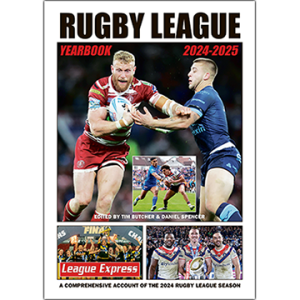
French rugby union once wielded enough power to prevent any of their players switching codes. But now that power has gone, why is the rugby league community in France so unwilling to welcome code-switchers?
French rugby union has always been good at building a well-oiled narrative.
That’s something you can’t deny from them.
They offer points of view about everything concerning the oval ball in France.
Ready-made thoughts to explain almost everything. Some would just say that they have a good communication strategy.
A good example is when a player or a manager switches to league.
The older generations will tell you that when players turn to league, it’s because they have troubles and need to flee something. An example of that would be the famous union player Jean Capdouze, in the ’60s, who had some legal issues which explained the fact he joined XIII Catalan. An urban legend. Or, more recently in the ’90s, when a certain Jacques Fouroux, in disagreement with FFRXV, left the opaque union organisation, to create ‘France Rugby League’ and to become later the first chairman of the Paris Saint-Germain rugby league club.
Even many years afterwards, episodes like the one with Israel Folau joining the Catalans Dragons – only for a very short time though – could apparently give wind to their sails.
Yet, this is nothing compared to the incredible administrative and legal obstacles they set in the past to prevent players from switching codes: banning them from the 15-a-side code was very usual. In the Anglophone countries, rugby union players faced similar problems. Nevertheless, on your side of the Channel, it seems that authorities were as noxious, but tried to keep up appearances.
But today, the French rugby union has had to accept the fact that their players are no more their properties, or hostages of their local communities or clubs, but French citizens and adults and that they can practice any other sport if they like, after their career or besides. Even if it’s just for an interseason.
And as a result, double-registrations (to both union and league) are becoming more and more usual, with the FRU agreement no longer required.
But if union is now out of the equation, the code converts are not always welcomed with open arms, at least by a minority of Treizistes.
And Salses XIII, a club located in the French Catalan country, couldn’t agree more with that as they were unwittingly at the centre of a controversy on the social networks.
What was Salses’ ‘felony’? Hiring four rugby union players from Salanque CR XV! Yes, at a delicate moment: around the final rounds of the championship. They were not the first ones in French rugby league history to do so. And not the only club to do that this season with an even more spectacular code-switching, still in the third division, when Samoa’s Vavae Tuilagi (Trèbes XV, pictured top) joined Pamiers-Vernajoul XIII (see Treiziste Diary in RLW 495 to know more about this club). Yet the Salséens were the ones who were flamed on social networks.
A small city of 3,000 inhabitants but with an original history, Salses-le-Château! A former Spanish fortress taken by the French around the 17st century. Its rugby league club was created in 1945, the games being played at Stade Louis Ulrich, and since, the fortress became a rugby league stronghold and now plays in the Nationale Championship.
The club felt they had to defend themselves in the local newspaper in an article titled in French “I don’t understand”. Manager Jean-Baptise Lautrey declared in L’Indépendant – Perpignan’s edition: “The reason why we hired those union players, is because there were fewer and fewer players at the training sessions. Indeed, six players had to stop the season because they were injured. We had also a shortage of players at some specific positions. Those players bring us some oxygen.”
President Mehdi Fraihat also gave me precious pieces of information about how to concretely deal with union players: “During the training sessions, the four players (Rémy Duret, Clément Nouzières, Fabien Gricourt and Pierre Roca) work the play-the-ball, dominant tackling and the 10 metres defence retirement.”
And he underlines the fact that the four recruits are “good spirited, with good technical qualities, and have integrated well into the group.”
In the newspaper mentioned above, Lautrey also added, “Criticism comes from league, not union!”
Fraihat agrees with that and he told me: “Yes, on social networks, people can express their opinions and of course feel free to judge everyone and everything. We respect everyone’s point of view but we, as volunteers, just try to move forward everyday. Many people are trying to create the buzz about our club!”
At Pamiers the overall atmosphere is different. And an enthusiastic Edouard Laguerre (manager of Pamiers XIII) answered my questions.
“We’ve recruited Vavae Tuilagi to compensate the loss of Pascal Record (injured). The contacts have been facilitated by our player Aaron Wood (an Australian prop who played, among other clubs, for Toulouse XIII) who played for Trèbes XV last season.
“Everyone at the club is happy with him; he’s a humble chap and is appreciated by all the staff. He brings power at the centre of the field and his experience of high-level competition.”
I asked Laguerre if there was a controversy similar to the one developed at Salses.
“No controversy here! We’re the sole rugby league club in Ariège, our area. People are happy to see a player of this calibre wearing the colours of the club. There was no controversy either when we recruited Olivier Bertro (SC Appaméen) last year. No one complained when he penned a deal with the club. Everyone is free and those controversies are counterproductive in sport.”
A funny coincidence being that Salses and Pamiers played against each other in the Nationale Coupe de France Grand Final (with a victory for Pamiers 42-22 at Villeneuve Le Minervois).
I mentioned earlier the urban legend told by the older generations about the code-switchers.
And what do the young generations make of that phenomenon?
I had the opportunity to exchange with two pundits of the Treiziste rising generation: Jessika Guehaseim (see Treiziste Diary in RLW 470) and coach and player Baptiste Faure. Both are now offering the public a podcast “Bonjour, Rugby League!” (on YouTube and Instagram) and in their fourth episode they discussed the Salses’ affair.
Both see nothing wrong with those code-switchings.
“As long as the federal rules are respected,” specifies Faure nevertheless.
He explicitly refers to Article 280 of the Federal regulations which broadly states that only two players registered after 31st March can play official games. And moreover, there is a restriction; to take part in the final rounds, those players must have played during the elimination phase.
Incidentally, Salses’ community manager on Facebook confirmed to me that their players were registered before 31st March.
But coach Faure sets a second condition for a good code-switch: “As long as this inclusion of union players at such a delicate moment in the season doesn’t interfere with the group’s strength and dynamics.”
Guehaseim even wonders, “Would there be this controversy, if the recruits came from any other sport? I don’t think so! Furthermore, it seems really a men’s problem. Women players also switch codes, and when they do, no one gets into the argument whether it’s a good or a bad thing. On the contrary, it can be very positive, I have in mind the experience of Mélanie Bianchini.”
It is indeed a good example as this is the player who scored the first try for France, against the Cook Islands, during the latest World Cup. Bianchini was originally a USAP union player who joined the Déesses Catalanes without cutting all ties with union.
Will younger generations lead us to change mentalities?
That could be the momentum of that change.
Now union is no more in a position to put blocks on the road of those who want to turn to league, it’s actually the worst time for Treizistes to put mental barriers between themselves and what could be an excellent opportunity to publicise Rugby à XIII in France.
And why not, this may be the best moment to keep these code converts for good?
First published in Rugby League World magazine, Issue 497 (June 2024)
Click here to subscribe to the print edition of Rugby League World




